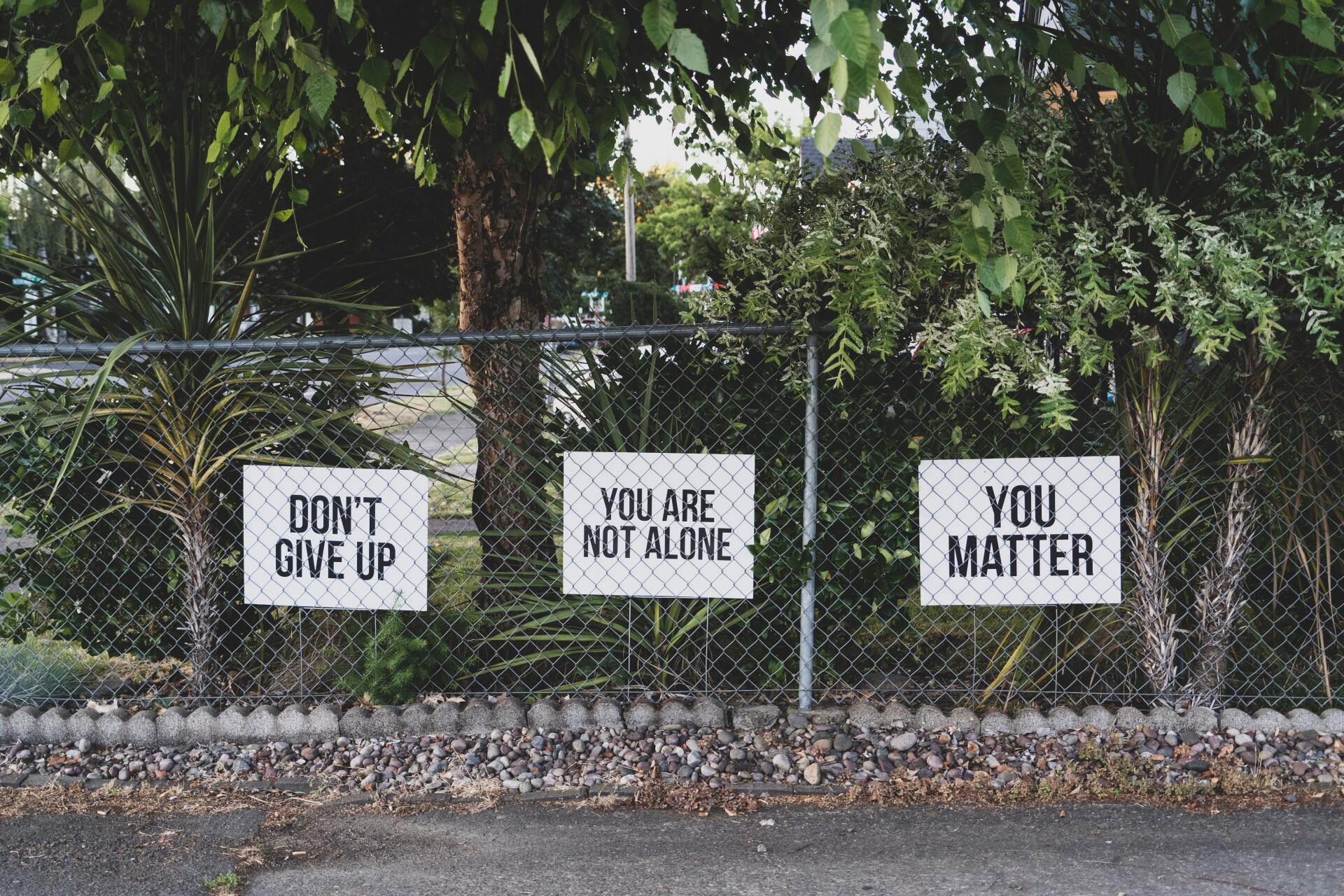How Mental Health Problems Result In Physical Ailments
By: Eric Wolff
April 23, 2022
Don’t Be A Statistic – Secrets To A Healthy Mind, Body, And Soul
Think about the healthiest people you know. In addition to being physically fit, these people are optimistic about life and are always pursuing self-improvement. For these individuals, there is no mountain they can’t climb and their positive attitude is contagious. Here we have the typical chicken or the egg conundrum. Are these people mentally healthy because their physical health is top-notch or are they physically healthy because their mental health is optimized? In all reality, both are true, as the cascading cycle of positive reinforcement improves both mental health and physical health simultaneously.
Mental health and physical health go hand-in-hand and should be treated as such. We all know that if we don’t feel optimal mentally, our physical health suffers and life satisfaction drops significantly. An estimated 20% of adults suffer from a mental illness which includes depression, anxiety, schizophrenia, OCD, and addiction. These same individuals often suffer from mentally induced physical symptoms that include heart disease, high blood pressure, immune system dysfunction, obesity, digestive problems, reduced sex drive, asthma, and premature death.
A while back a good friend of mine shared a movie called The Secret. The premise of The Secret all boils down to one phrase, “thoughts become things.” In other words, what we think slowly transforms our reality. Focusing on positive thoughts results in an existence rife with positive experiences. On the contrary, negative thoughts equate to more negative experiences.
Whether or not we have the ability to manipulate our reality isn’t necessarily important. What is important is that our perception of what happens to us is positively or negatively distorted. For instance, a scenario where your car broke down when you were on your way to work can either be seen as bad luck or good luck. From a pessimist standpoint, the car breaking down caused significant stress, anxiety, anger, and possibly, work-related reprimands. An optimistic perspective of the situation could result in thinking that the universe prevented you from ending up in a serious accident or maybe it was time to pursue a different career path if the situation resulted in work-related problems. Simply put, it is within our power to control how we respond to whatever happens to us.
While a bit metaphysical, believing that our thoughts create our destiny gives us some control over our lives and health. In any case, the way we mentally react to whatever happens to us in life has physical implications. For example, optimistic people are shown to have a 50% lower risk of developing cardiovascular disease. Furthermore, optimism has been shown to improve cardiovascular health, while slowing down the rate of disease progression. These impressive stats point to the power of positive thinking on our physical health. On the other side of the coin, stress and anxiety can result in a short-term stomach ache. While this may not cause permanent harm, a constant state of stress, anxiety, depression, and other mental health conditions have been shown to result in chronic physical maladies.
Remember, what you think is more powerful than you may realize.

Stress And Anxiety
Anxiety disorders affect an estimated 284 million people worldwide, roughly 3.8% of the population. Chronic anxiety results in elevated levels of cortisol, the stress hormone. Elevated cortisol levels contribute to many health problems like sleep disturbances, migraines, weight gain, digestive disorders, depression, fatigue, acne, and psoriasis.
OCD
OCD affects between 1.9 and 3% of the world population. Many people who have OCD often suffer from renal damage and hyperlipidemia, an elevated amount of lipids within the bloodstream, resulting in high cholesterol and triglyceride levels. People who suffer from OCD may cause themselves physical harm depending on the nature of their compulsion. For instance, washing your hands 100 times a day is going to have negative physical health consequences.
Sleep Problems
Mental health conditions often lead to sleep disorders like sleep apnea and insomnia. An estimated 50 to 80% of individuals suffering from a mental health condition report sleeping difficulties. Without adequate sleep, your body is not able to properly repair itself and maintain optimal physical condition. Additionally, long-term sleep deprivation is associated with weight gain, an increase in the risk of certain cancers, gastrointestinal disorders, cardiovascular disorders, and even death.
Depression
An estimated 264 million people worldwide suffer from depression, 3.4% of the global population. Physical health problems that are associated with depression include generalized pain, gastrointestinal problems, fatigue, sleep problems, and changes in appetite. People who suffer from depression often find it to be a struggle to get out of bed and take on the activities of the day. Anyone in this situation likely won’t be eating a healthy diet or exercising to maintain proper physical fitness. Additionally, people suffering from depression often consume alcohol, drugs, and smoke as an attempt to escape the dungeon in their heads.
Depression is linked to physical conditions like chronic pain that doesn’t go away, sinus problems, immune system dysfunction, chronic inflammation, and a reduction in longevity. Depression is also connected to diabetes, cancer, arthritis, asthma, and cardiovascular disease. Depression often leads to anxiety, indicating the connected nature of mental health problems. Depression, while a mental health condition, affects the entire physical body.
Improving Physical Health Improves Mental Health And Vice Versa
Now that we know that mental health is directly correlated to physical health and vice versa, what can we do to improve our overall health? On the most basic level, consistent exercise, sufficient sleep, a healthy diet, relaxation techniques, and positive mental reinforcement are the building blocks of mental and physical health improvement. Additionally, a healthier lifestyle leads to less drinking, smoking cessation, and limited junk food consumption.
Nothing Beats Exercise
Exercise is the single best way to improve physical health and mental health simultaneously. The amount of physical activity one performs has been directly correlated to mental health. Exercise reduces anxiety, improves sleep, and has a positive effect on depression. Exercise causes the release of dopamine, improving mental and physical health on multiple levels.
Do Counseling And Psychiatric Drugs Help Improve Mental Health?
Counseling and psychiatric drugs are the typical tools used to assist people with mental health problems. Do they work? In some cases, both counseling and psychiatric drugs assist those with mental disorders, but the success rates aren’t as high as we would hope. Talking to someone, a counselor or psychiatrist, is great if a patient is open to the idea and willing to take in feedback. Psychiatric drugs often mask the symptoms of mental illness but don’t do anything to correct the core problem. As soon as someone stops seeking counseling and psychiatric drugs, the anxiety, depression, or OCD kicks back in, making psychiatric drugs a Band-Aid to the problem at best.
Psilocybin Mushrooms – The Hidden Mental Health Secret
The latest research indicates that mental health conditions like depression, anxiety, OCD, and addiction, all stem from atrophy of the cerebral cortex. The only way to treat or better yet cure mental health conditions is to regenerate the neural structures that have atrophied. Fortunately, there is one surprising substance, psilocybin, that stimulates the brain to produce Brain-derived neurotrophic factor (BDNF), which is responsible for repairing damaged brain tissue. BDNF promotes synapse formation, dendritic spine growth, and dendritic arbor complexity, all required for healthy brain tissue. Psilocybin is the active compound in psychedelic mushrooms. Fortunately, a microdose, something small enough to avoid hallucinogenic effects, is enough to promote BDNF secretion. In other words, psilocybin regrows the brain, treating mental conditions like depression at their structural core rather than breaking the brain down like many other drugs.
Psilocybin has shown significant promise in treating depression and there are ongoing studies, as the FDA has allowed psilocybin to be used to treat depression as a breakthrough therapy if all other treatment options have failed. In one clinical trial, 71% of participants reported a significant improvement in depression symptoms after consuming psilocybin and 58% were in remission a week later, an impressive result when compared to typical treatment options.
While not everyone may be receptive to psilocybin as a treatment option, it is a blessing that such a substance exists, as we now have a tool to treat a wide range of mental health conditions and in turn, treat physical health problems that stem from mental impairment.
Conclusion
Mental health illness and physical ailments go hand-in-hand. People with mental health issues often report physical maladies while people with physical illnesses often suffer from mental health diseases. Treating physical conditions that stem from mental health all comes down to improving psychological health. Start improving mental health by exercising, sleeping consistently, eating well, performing relaxation techniques, and practicing positive mental reinforcement, while abstaining from drinking, drugs, and smoking. If that is not enough, typical treatment options like counseling or experimental treatment options like psilocybin may provide relief. Don’t be a statistic, actively pursue a solution to your mental health problems so they don’t result in chronic physical ailments.
References:
https://www.mayoclinic.org/diseases-conditions/mental-illness/symptoms-causes/syc-20374968
https://www.youtube.com/watch?v=i7GmSg8vmcg
https://www.apa.org/topics/stress/body
https://ourworldindata.org/mental-health
https://pubmed.ncbi.nlm.nih.gov/29509545/
https://www.ncbi.nlm.nih.gov/pmc/articles/PMC3104891/
https://jamanetwork.com/journals/jamapsychiatry/fullarticle/1696348
https://www.ncbi.nlm.nih.gov/pmc/articles/PMC3424606/
https://www.mayoclinic.org/healthy-lifestyle/stress-management/in-depth/stress/art-20046037
https://pubmed.ncbi.nlm.nih.gov/17340019/
https://www.webmd.com/mental-health/how-does-mental-health-affect-physical-health
https://www.ncbi.nlm.nih.gov/pmc/articles/PMC5449130/
https://www.ncbi.nlm.nih.gov/pmc/articles/PMC486942/
https://onlinedegrees.bradley.edu/blog/how-mental-health-affects-physical-health/
http://www.health.harvard.edu/mind-and-mood/depression_and_pain
https://www.psychologytoday.com/intl/blog/minding-the-body/201401/chronic-sinus-problems-are-linked-depression
https://www.apa.org/research/action/immune
https://www.cell.com/neuron/fulltext/S0896-6273(18)30531-2
https://www.webmd.com/mental-health/how-does-mental-health-affect-physical-health
https://pubmed.ncbi.nlm.nih.gov/19379961/
https://www.hsph.harvard.edu/news/press-releases/positive-emotions-cardiovascular-health/
https://www.mentalhealth.org.uk/a-to-z/p/physical-health-and-mental-health
https://www.ncbi.nlm.nih.gov/pmc/articles/PMC4911759/
https://pubmed.ncbi.nlm.nih.gov/29132081/
https://hopkinspsychedelic.org/
https://www.ncbi.nlm.nih.gov/pmc/articles/PMC6489983/
https://clinicaltrials.gov/ct2/show/NCT03866174
https://nihrecord.nih.gov/2020/02/07/psilocybin-might-aid-treatment-mental-disorders-addiction
https://pubmed.ncbi.nlm.nih.gov/34565579/
https://jamanetwork.com/journals/jamapsychiatry/fullarticle/2772630
Join a Community Built for You
Helping you live life to the fullest, HareClub’s marketplace connects you with business coaches, therapists, and a host of helpful service providers from around the world.
All Rights Reserved | Hareclub


